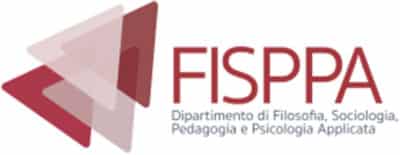
The First-Level Short Specialisation Degree in Data Science & Data Management provides training on the methods and tools to use text data – strategically important in the current historical phase. In this view, their collection, analysis, assessment and management represent the competences to define which and what type of knowledge should be extrapolated from text data, so as to operate in the different corporate-organizational, healthcare, political-economic, economic-political, legal, community and public policy sectors.
The goal of the Master is to build a Data Scientist & Data Analyst profile, capable of analysing the different human needs (historically and narratively speaking), anticipating future scenarios, defining strategies, innovating and supporting decision-making processes, monitoring and assessing project effectiveness.
The First-Level Short Specialisation Degree in Data Science & Data Management provides training on theoretical language models; maths-statistical fundamentals for data science; data management; data management and analysis systems; machine learning & IA; big data analytics; data visualization & curation.
The course provides three kinds of contents:
- Knowledge on:
- theoretical-methodological references to language studies;
- data science models and tools;
data analysis & data management.
- Applicative competences to:
- data analysis for target detection and need anticipation, future scenario anticipation, strategy definition, innovation, decision-making processes;
- applications in corporate-organizational, healthcare, political-economic and economic-political, legal, community, and public policy sectors;
- M.A.D.I.T. method and statistical-experimental analysis plan construction methods;
- mastering of statistical-maths fundamentals;
- machine learning & IA, big data analytics, data visualization, data curation, data management.
- Independent judgement to promote:
- analysis of critical aspects concerning data privacy, data protection and data ethics;
- social and ethical liability management;
- data management error analysis and anticipations;
- innovation.
Master’s Degree in Data Science & Data Management
This Master’s program is aimed at individuals holding at least a bachelor’s degree in economics, engineering, computer science, statistics, mathematics, psychology, health professions, biology, sociology, communication, philosophy, government and public policy, European and Global Studies, Local Development, law and technology, computer science and linguistics, or social work (the latter only for those with a master’s degree).
Upon completion, future Data Scientists and Data Analysts can work for public and private organizations that manage large volumes of textual data, such as government agencies, universities, research institutions, corporate research centers, foundations, mass media, public administration bodies, European project organizations, banks and foundations, insurance companies, retail chains, consulting firms, as well as private companies and multinational corporations.
The Master’s program prepares Data Scientists and Data Analysts for diverse fields of application, including marketing, business and organizational management, political-economic and economic-political analysis, healthcare, public policy, legal, and community sectors.
Master’s Degree in Data Science & Data Management
The Master’s program offers in-depth training through the following modules:
Module 1 – Knowledge-Based and Data-Driven Analysis
– Formalization of interactions occurring through language use (Dialogical Process Analysis – DPA)
– Theories and models of language analysis
– Epistemological foundations underlying the scientific paradigm for generating observational data and reflections on available approaches (interactionism, neural networks, NLP, linguistics, Dialogical Process Analysis, etc.)
Module 2 – Data Privacy, Data Protection, and Ethics in Data Use
– Roles and competencies of Data Scientists and Data Analysts
– Knowledge of ethical issues, privacy laws, data protection regulations, and a clear definition of roles and skills required for Data Scientists and Data Analysts
Module 3 – Methodologies for Textual Data Analysis
– Development of skills in using the M.A.D.I.T. methodology to design analysis with specific objectives
– Competence in applying statistical-experimental methods to build rigorous and effective analysis plans
Module 4 – Advanced Statistics for Data Science & Machine Learning
– Databases (data collection, data quality, NoSQL vs SQL databases, DBMS, and Data Warehouses)
– Data management and analysis systems:
– Big Data Analytics & Real-Time Big Data Processing
– Development of knowledge and skills related to AI and Machine Learning
– Development of mathematical-statistical fundamentals underlying Data Science and data management and analysis systems (Python, Orange, Tableau, Google Analytics)
Module 5 – Data Visualization; Data Curation & Data Management Technology
– Knowledge of key tools for effective representation and visualization of textual data
– Introduction to main tools supporting Data Curation
Module 6 – Dialogic Data Business Management
– Development of knowledge related to dialogic business process management models and textual data management
Module 7 – Dialogic Data Strategy & Decision Making and Error Analysis for Innovation and Change
– Development of skills to use textual data for strategy definition and decision-making
– Development of error analysis competencies to foster innovation
Module 8 – Applications in Data Intelligence and Marketing
– Applications in social media
– Applications in justice administration
– Applications in healthcare
– Applications in community settings
– Applications in sustainability
– Laboratory sessions involving project development, analysis plans, and considerations on the use of textual data in relation to specific analysis objectives
The First-Level Short Specialisation Degree’s peculiarities include:
- integration between computer science, statistics, and language use observations, including dialogic
- applications of knowledge and competences to several fields: in corporate-organizational, healthcare, political-economic and economic-political, legal, community, and public policy
- promoting the increase of an effective, efficient and rigorous management of text data generation, thanks to the interaction between the disciplines mentioned above, which allow changing the way we recognize and analyse text data, and therefore to intervene with respect to multiple critical issues found today in analysis (extrapolating knowledge from a large quantity of data; not knowing which data to select; not knowing how to use data for specific goals, etc.)
Future Data Scientists & Data Analysts can develop broad competences in the observation and gathering of text data, and in the implementation of IT and statistical tools to analyse them.
The First-Level Short Specialisation Degree in Data Science & Data Management includes in-person (mainly) and remote lessons, and promotes the interaction between professors and students, through lectures, individual practice and workshops on multiple application cases. The course includes a mandatory 250-hour traineeship/project work and a final exam. A mandatory attendance of 70% of the total hours (300) is required.
The general ranking of merit for the academic year 2025/26 will be published on the Italian page of this Master according to the timing provided in the Call.
Single course
Information
FAQ
Yes, there will be a 250-hour traineeship to observe and develop text data analysis skills in relevant institutions.
The First-Level Short Specialisation Degree does not provide any forms of facilitation. You can check whether you have the requirements to request a scholarship to the University of Padua.
The Course include part of the lessons in person, and part of them online. For specific needs, refer to the course’s Director.
The First-Level Short Specialisation Degree collaborates with a network of enterprises and professionals and helps students to interface with the institutions they would like to work for.

